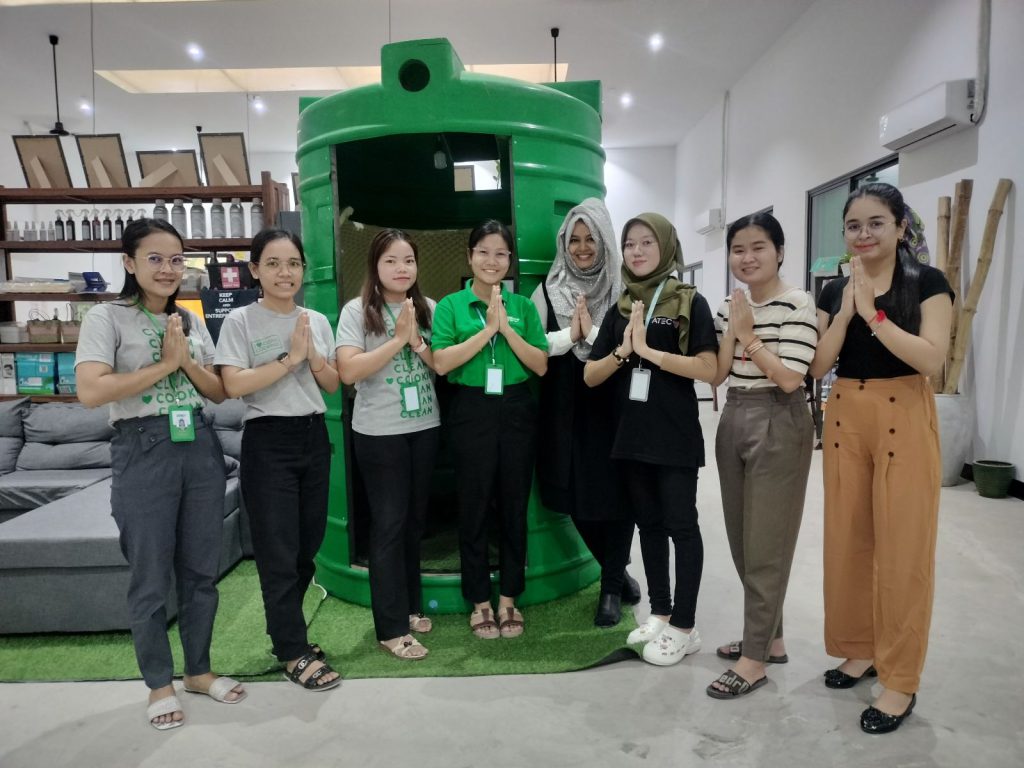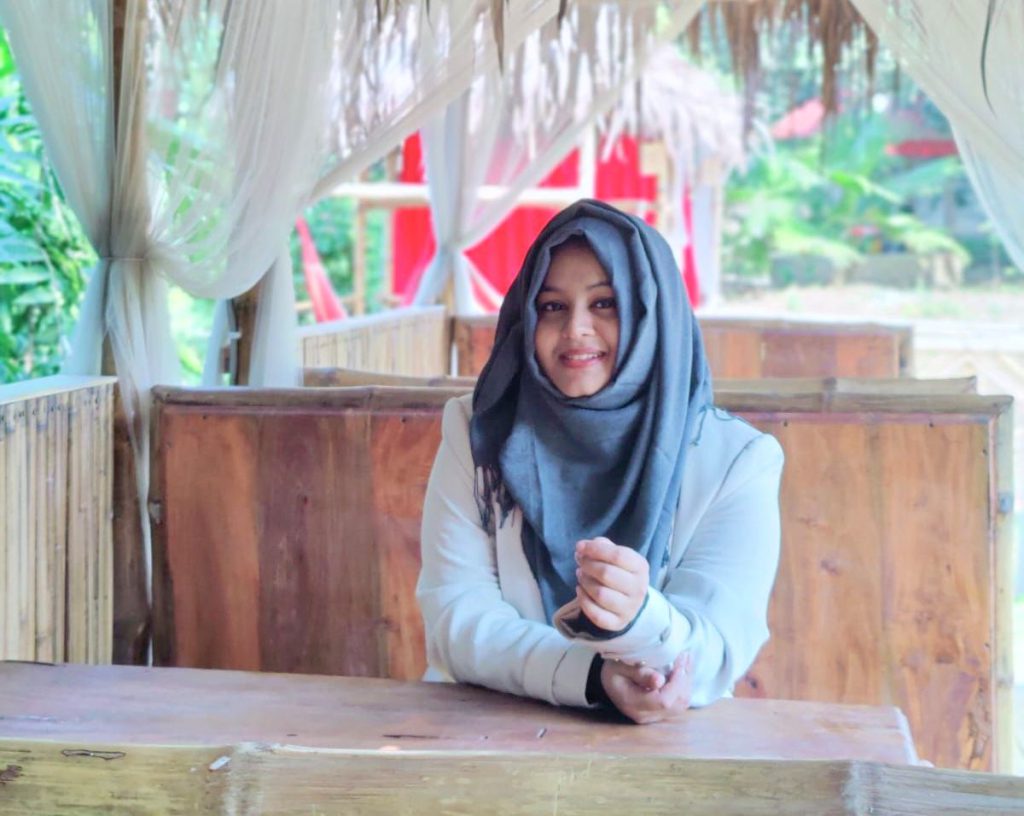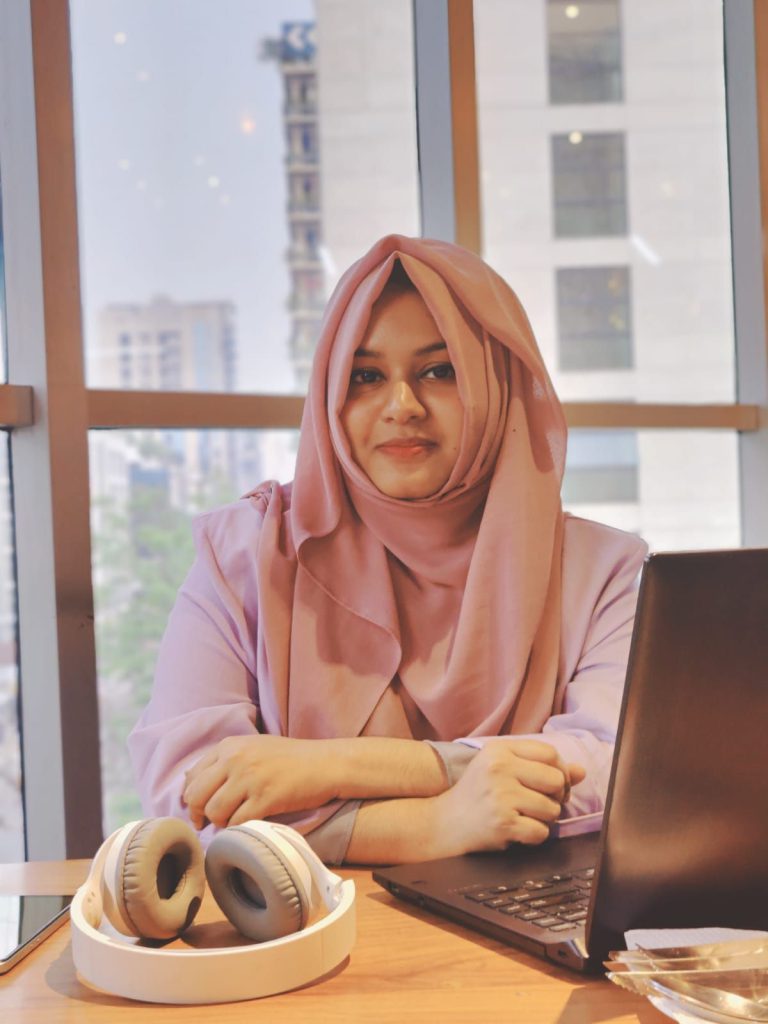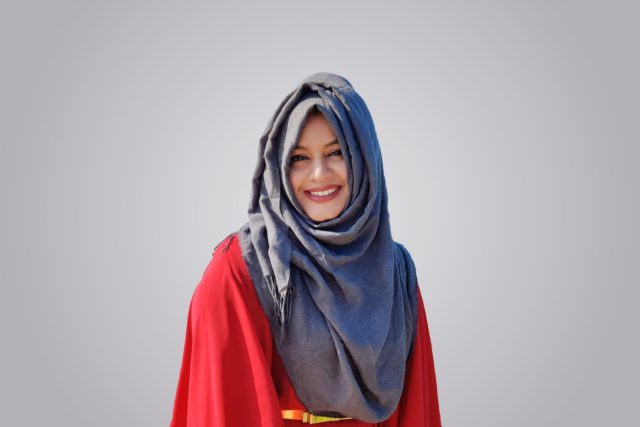Monika Noshin
Funding Coordinator
ATEC Global
Meet Monika Noshin, a dynamic force reshaping the landscape of international development. Her journey from nostalgic scents to global change-making is nothing short of extraordinary. Once enamored by the wood-burning aroma that invoked memories of her grandmother, Monika’s perspective underwent a profound transformation when she discovered its link to her grandmother’s early passing due to heart disease. Today, she’s on a mission to eliminate wood fuel usage in cooking, a major contributor to heart disease, particularly affecting women who shoulder caregiving responsibilities. In a career spanning nine years, Monika has donned various hats, from a meticulous social science researcher evaluating projects for USAID to skillfully managing humanitarian initiatives for displaced Myanmar nationals. Presently, she spearheads global grant funding, impact investment, and carbon finance for clean energy programs in multiple countries, championing IoT solutions for efficient cooking and significant carbon emission reduction. Her financial prowess has helped raise over USD 10 million for diverse projects, while her fund management acumen ensures ethical and efficient resource allocation. Monika’s story is one of passion, transformation, and unwavering commitment to catalyzing global change one project at a time. Let’s read the exclusive interview, don’t delay to open your rational mind.
Let’s learn about her journey.
The InCAP: Ms. Monika Noshin, please share your professional and academic peregrination for our readers!
Ms. Monika Noshin: My desire to make a meaningful difference in the world led me to the development sector, where I work on pressing global issues. Engaging in impact-driven industries often transforms you as an individual. Take, for example, I used to consider the wood-burning scent as a heavenly smell that also reminded me of visits to my grandmother’s home. My grandma died relatively early due to heart disease. Currently, I work in the clean cooking industry to eliminate wood fuel usage in cooking that leads to health issues like heart disease, especially affecting women who are particularly exposed being the primary caregivers. Now I know that the very aroma I once enjoyed was linked to my grandmother’s premature passing. I don’t enjoy the aroma anymore.
Over nine years, my career has evolved through diverse roles in the international development sector. I began as a social science researcher, assessing projects for organizations like USAID and Swisscontact. Then, I managed and worked to raise funds for different Humanitarian projects for the displaced Myanmar nationals in the refugee camp under a UK-based donor organization. In the past three years, I’ve overseen global grant funding, impact investment, and carbon finance for clean energy programs with ATEC, an Australian social enterprise, across multiple countries including Bangladesh, Cambodia, Nepal, India, Rwanda, Zambia, and Kenya to scale up affordable IoT solutions for efficient cooking among underserved populations, aiming to significantly reduce carbon emissions associated with cooking practices.
Throughout my career, I’ve helped organizations raise over USD 10 million for various projects and developed fund management and impact measurement frameworks.
I spent a significant portion of my academic journey at BAF Shaheen School followed by my HSC at Rajuk Uttara Model College in Business Studies. I hold graduate and postgraduate degrees in Social Science, specializing in Women and Gender Studies from the University of Dhaka.
Can you briefly describe your role as a funding professional and some key responsibilities?
Roles: My role as a funding professional can be categorized into three primary areas, each with a specific focus and allocation of time. Approximately 40% of my role involves research, where I actively identify potential funding sources, assess their compatibility with our organization’s mission, and gather crucial insights into their funding priorities. Another 40% centers around tools development and implementation, requiring the creation of compelling proposals, meticulous budget planning, and the strategic design of projects to attract funding. The remaining 20% is dedicated to networking, where I cultivate relationships with potential donors, partners, and stakeholders, enabling a deeper understanding of their objectives and fostering collaborations that can drive our mission forward. These roles are spread across both pre-funding and post-funding phases, ensuring a comprehensive approach to funding activities.
Responsibilities: In the post-funding phase, my responsibilities are multifaceted. I am tasked with efficient fund management, overseeing the responsible allocation of financial resources, including meticulous budget tracking and expenditure management. Upholding ethical principles in reporting and communication is paramount, ensuring transparency and accountability in all interactions with donors and stakeholders. Effective and timely communication with different departments within the organization is another key responsibility, facilitating the alignment of funded projects with strategic objectives, enabling seamless project implementation, and optimizing the impact of our initiatives. These responsibilities collectively contribute to the success of our fundraising efforts and the ethical, efficient utilization of funds to drive positive impact.
How do you funding various projects within the organizations you work for?
I have found the demand and supply strategy to be exceptionally effective in the realm of fundraising.
On the demand side, the Fund providers, in most cases, are actively engaged in fundraising activities from primary sources for which they need to show robust evidence of the effectiveness of fund disbursement from previous cohorts and value for money. To address the demands of fund providers, I take a comprehensive approach. First, I carefully select suitable funding opportunities, thanks to the guidance of my boss cum mentor, Ben Jeffreys, ATEC’s CEO, for instilling his practice firmly in me. Then, I deeply analyze fund providers’ requirements and collaborate with relevant departments to create projects that align precisely with these demands. Sometimes, this may involve focusing on a combination of themes or a combination of stakeholders, like our successful collaboration with iDE through DANIDA funding where a demonstration of a successful partnership between commercial and non-commercial organizations is the key deliverables. My dual experience in NGO and private sectors enables me to bridge terminology gaps, connecting concepts like “marketing” in the commercial sector with “knowledge dissemination” in development that may initially appear worlds apart.
On the supply side, the success of fundraising endeavors is contingent upon the fund recipient’s ability to craft compelling solutions and substantiate their claims with tangible project outcomes. I collaborate with different parts of our organization, like those responsible for running programs, sharing knowledge, and providing services or products. I maintain a strong focus on fund management, recording project activities, and evaluating impacts and outcomes. This rigorous approach helps demonstrate our commitment to transparency and effectiveness, which enhances our attractiveness to potential funders.

What strategies do you employ to ensure that an organization that funding allocations align with its strategic goals and objectives?
To ensure an organization’s funding aligns with its strategic goals, I follow a comprehensive approach. Firstly, I deeply understand the organization’s strategic plan, including its mission and long-term aims. This knowledge forms the foundation for aligning funding allocations.
Working closely with the finance and implementing teams, I make certain that the budget directly supports these strategic goals. We allocate funds to projects and initiatives that contribute significantly to these objectives. Importantly, I also collaborate with different departments to understand their individual plans of work. This ensures that funding allocations are tailored to the specific needs and goals of each department. Additionally, maintaining flexibility in funding allows us to adapt to changing circumstances or seize emerging opportunities while still staying true to our strategic plan.
How do you stay updated on changing funding opportunities and trends in your industry?
Remaining informed about evolving funding opportunities and industry trends is paramount in my role as a funding professional. To achieve this, I adopt a comprehensive approach.
Firstly, active participation in networking and industry associations is pivotal. Attending conferences and webinars and engaging with peers provide invaluable insights into emerging funding prospects and the latest sector trends. These interactions extend my understanding beyond our organization’s immediate scope. An illustrative example of this commitment is my participation as a panelist at the Clean Cooking Forum 2022 in Ghana, where I contributed to discussions on result-based financing. This event offered an exceptional opportunity to immerse myself in funding trends and critical clean energy topics while networking with sector leaders.
Secondly, continuous learning and sharing are essentials to remain one move ahead. Regularly consuming industry publications, research reports, and articles keeps me up-to-date with developments. This ongoing education ensures that I remain well-versed in innovative funding models, shifting donor priorities, and evolving industry dynamics.
Lastly, direct engagement with funders is fundamental. Building and nurturing relationships with donors allows me to gain insights into their funding preferences and upcoming opportunities. This proactive approach enables us to align our funding requests with their expectations effectively, enhancing our prospects of securing support for projects that align seamlessly with our organization’s mission and objectives.
Can you explain your approach to building and maintaining relationships with funding partners or donors?
Building and maintaining relationships with funding partners and donors hinges on two key principles: transparency and tailored engagement.
Transparency is the cornerstone of trust in any partnership. I prioritize open and honest communication, ensuring that our funding partners and donors have a clear understanding of our organization’s objectives, financial stewardship, and the impact of their contributions. This transparency fosters trust and confidence in our relationship.
Tailored engagement is equally crucial. Each funding partner and donor is unique, with distinct preferences and priorities. I make an effort to understand their specific goals and motivations. By customizing our interactions to suit their preferences, whether through detailed reports, personal meetings, or other means, I ensure that our engagement is meaningful and respectful of their individual needs. This approach creates mutually beneficial partnerships that endure over time.
Ms. Monika Noshin, please say something to the readers!
Dear readers, thank you for your time and interest in my professional journey. It’s truly fulfilling to know that my experiences and insights may inspire or benefit others, especially those considering a career in this field. I vividly remember my own early days and how valuable such knowledge would have been. Sharing my experiences through the InCAP platform has been an incredible privilege, and I hope you’ve found value in the information I’ve shared.

Quick Chat With Monika Noshin
The most outstanding achievement of your life as of now:
Standing firm with myself amid life’s tests and prioritizing meaningful work over material success.
The greatest philosopher in your view:
Islam and Stoicism are two schools of thought in my daily practice. I consider remarkable minds worldwide as philosophers, from whom I am constantly learning.
Your Icon:
My parents.
Name the most influential books you have read:
The Holy Quran, Dale Carnegie’s “How to Win Friends and Influence People”, “Building Social Business: The New Kind of Capitalism That Serves Humanity’s Most Pressing Needs” by Dr. Yunus, “The Art of War” by Sun Tzu, “Srikanta” by Sharatchandra Chattopadhyay.
Your greatest fear:
Getting married and being deceased before contributing to the world as I intended.
Best piece of advice you’ve received:
“No matter how rough things might get, it’s not the end of the world. And even if it were, there’d be no need to dwell on your worries, for the world itself would soon be at its end.”
You in only three words:
Eternally Curious Soul.

Skill Set
- Hard Skills: Proficiency in spotting problems and designing projects with innovative and effective solutions. Comprehensive knowledge of the logical framework, stakeholder mapping, risk matrix, and gender-sensitive tools to prepare proposals and budgets aligning with funding requirements. Expertise in data analysis for project assessment and impact monitoring. Continuous learning approach towards international regulations and frameworks for different funding components.
- Soft Skills: Understanding ethics related to fund management and maintaining a steadfast commitment to ethical principles. Exhibits strong communication skills with a compassionate, adaptable, and diplomatic approach with both fund providers and recipients, regardless of one’s position at the table. Consistently strives to enhance sector-specific intelligence through structured learning and knowledge-sharing.
Prayer for The Human Civilization:
Stay masters, not servants of tech.
The InCAP: Thank you, Ms. Monika! It’s a glittering conversation with you!
Ms. Monika Noshin: My pleasure! Wish you all the best! Thank you.
To read more about Professional Icon’s stories, Please Click Here!











